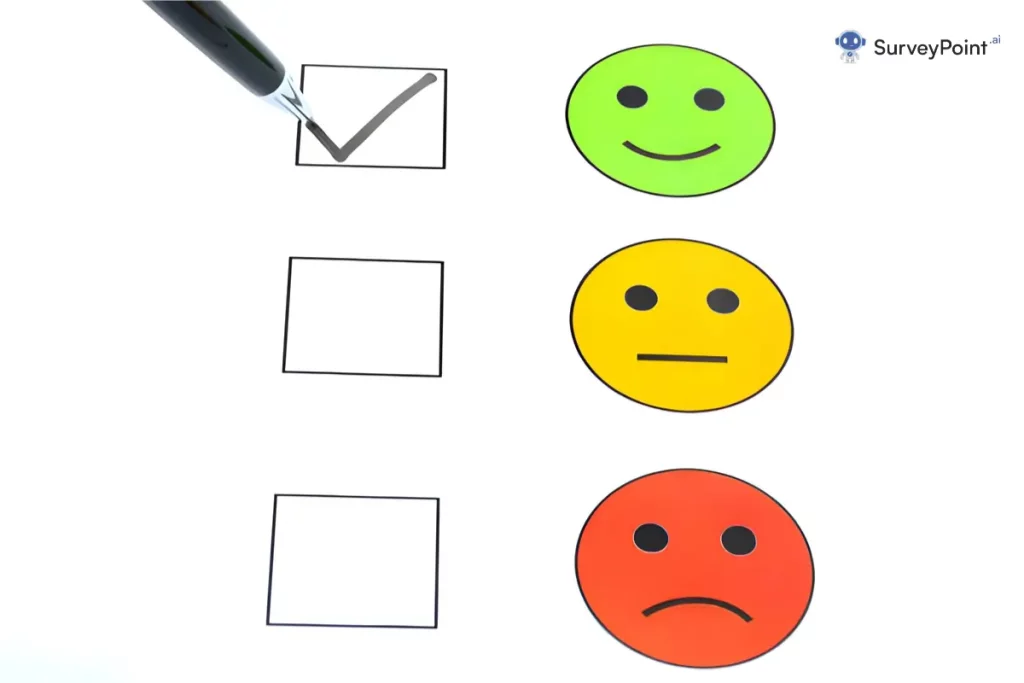
Voice surveys are a powerful tool for gathering feedback and insights. In this blog, we’ll explore how to create engaging voice surveys that not only capture responses but also provide meaningful data. Let’s dive in!
Why Voice Surveys Matter
- Connecting with Emotion: Voice surveys allow respondents to express themselves naturally, capturing emotions and nuances that text-based surveys might miss.
- Higher Response Rates: People are more likely to participate in voice surveys because they feel heard and valued.
- Richer Insights: Voice responses provide context and depth, giving you a better understanding of your audience.
Crafting Effective Voice Survey Questions
Keep It Simple
- Avoid jargon or complex language. Imagine you’re having a casual conversation with a friend.
- Example: Instead of asking, “How frequently do you utilize our services?” say, “How often do you use our services?”
Address Pain Points
- Identify common pain points your audience faces.
- Example: “What challenges do you encounter when navigating our website?”
Offer Solutions
- After identifying pain points, provide solutions.
- Example: “We’re working on streamlining our website navigation. What improvements would you like to see?”
Personalization and Trust
- Address Respondents by Name: Personalization shows that you value their input.
- Acknowledge Previous Interactions: If they’ve interacted with your brand before, mention it.
- Example: “Hi, John! We appreciate your loyalty. Could you share your thoughts on our recent product update?”
Mobile Optimization
- Ensure your voice surveys work seamlessly on mobile devices.
- Use clear progress bars and user-friendly interfaces.
- Example: “Tap the microphone icon to start recording your response.”
You Must Know
The Power of Direct Survey: Get Straight to the Point
Conducting Phone Service Surveys: Get Actionable Customer Feedback
Incentives and Rewards
- Offer small incentives (e.g., discounts, freebies) to motivate participation.
- Example: “Complete our voice survey and get 10% off your next purchase!”
Social Proof
- Share success stories from previous respondents.
- Example: “Hear how Sarah’s feedback led to a better customer experience.”
FAQ
Question: What is a voice survey?
Answer: A voice survey is a type of survey conducted over the phone, where respondents answer questions using their voice instead of written responses.
Question: How do voice surveys work?
Answer: Voice surveys typically involve automated phone calls or live interviewers who ask questions, and respondents provide verbal answers, which are then recorded or transcribed for analysis.
Question: What are the benefits of using voice surveys?
Answer: Voice surveys allow for real-time feedback, better accessibility for those with limited internet access, and can capture more in-depth responses through tone and elaboration.
Question: How are voice surveys different from online surveys?
Answer: Unlike online surveys, voice surveys involve direct interaction through phone calls, making them more personal and engaging, especially for respondents who prefer verbal communication.
Question: Can voice surveys be automated?
Answer: Yes, voice surveys can be automated using interactive voice response (IVR) systems, which allow respondents to answer pre-recorded questions via touch-tone responses or voice commands.
Question: What kind of questions can be asked in a voice survey?
Answer: Voice surveys can ask both open-ended and closed-ended questions, covering topics such as customer satisfaction, market research, or feedback on services.
Question: How long should a voice survey be?
Answer: A voice survey should ideally last between 5 to 10 minutes to keep respondents engaged without causing fatigue.
Question: Are voice surveys effective for collecting feedback?
Answer: Yes, voice surveys are effective for collecting detailed feedback, especially from individuals who are more comfortable expressing their thoughts verbally rather than in writing.
Question: How is data from voice surveys analyzed?
Answer: Responses are transcribed, and data is analyzed using various techniques such as keyword analysis, sentiment analysis, and traditional quantitative methods for structured responses.
Question: Are voice surveys secure and private?
Answer: Yes, voice surveys can be conducted securely, and respondents’ data is typically anonymized to protect their privacy, depending on the survey provider’s data policies.
Conclusion
Creating engaging voice surveys isn’t just about collecting data; it’s about building connections. By following these strategies, you’ll boost response rates, gain valuable insights, and strengthen your relationship with your audience.




